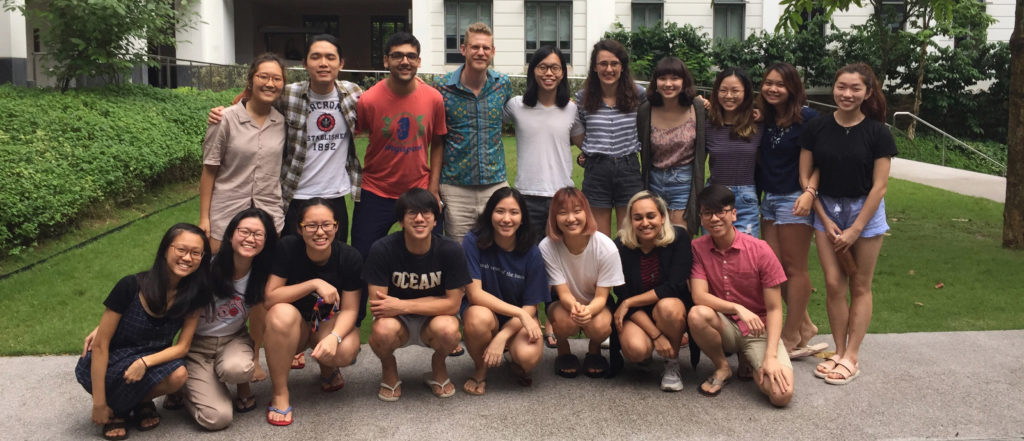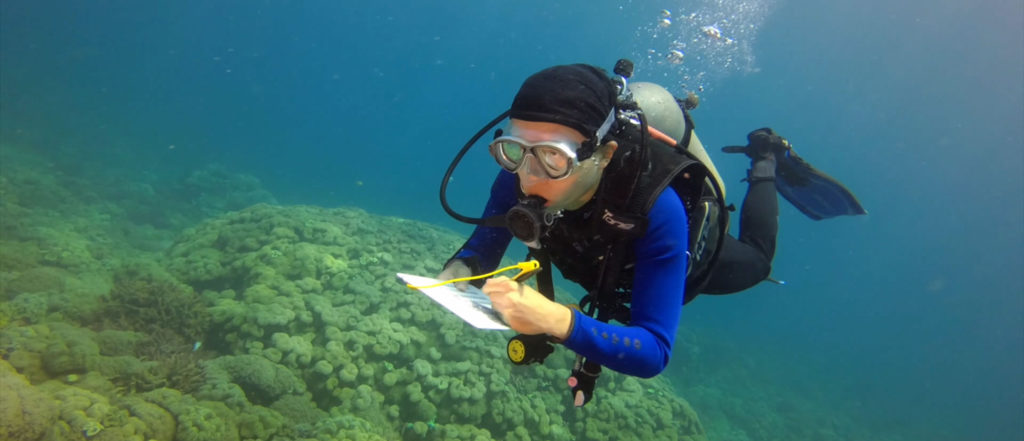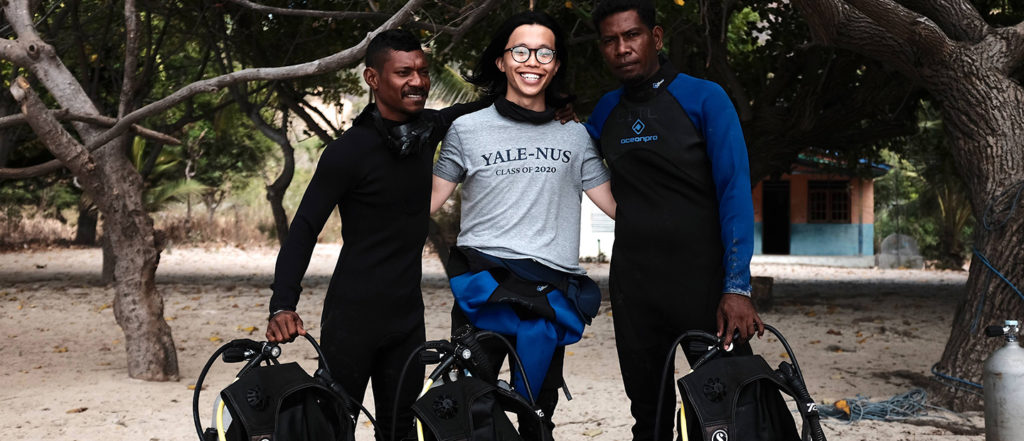Students explore major environmental issues through multiple lenses of arts and humanities
At Yale-NUS College, students collaborate with faculty to study environmental issues, both local and global, drawing upon the natural sciences, humanities, and social sciences in their work. Environmental Studies is one of the 14 majors offered at Yale-NUS, and one of courses under this major is Foundations of Environmental Humanities, which was introduced last semester. The new, interdisciplinary course is designed and taught by Assistant Professor of Social Sciences (Environmental Studies) Matthew Schneider-Mayerson.
 Dr Matthew Schneider-Mayerson (4th from left) with his students in the Foundations of Environmental Humanities course last semester. Image provided by Dr Matthew Schneider-Mayerson.
Dr Matthew Schneider-Mayerson (4th from left) with his students in the Foundations of Environmental Humanities course last semester. Image provided by Dr Matthew Schneider-Mayerson.
On the importance of environmental humanities as a field, Dr Schneider-Mayerson says, “While we tend to measure environmental problems through science and often focus on technology and policy in ‘solving’ or responding to them, the ongoing environmental crisis is ultimately the consequence of our values, priorities, and cultures.”
Consequently, studying the environmental humanities, which is an interdisciplinary humanistic study of environmental issues, is critical in responding to the global issue of climate change. Dr Schneider-Mayerson understands that this could be the first environmental humanities course being taught in Singapore.
Foundations of Environmental Humanities focuses on the role of the arts and humanities in understanding and responding to the socio-ecological challenges of the human age. Through the course, students seek to answer a critical question about our current situation – how can the arts and humanities help us respond to the environmental challenges of the Anthropocene (the current geological age in which human activity is the dominant influence on the environment).
Dr Schneider-Mayerson explains, “The course was unique in its commitment to interdisciplinarity – we changed disciplines every week or two, and placed thinkers from different fields, traditions, and times into conversation with each other. In this way, it builds upon the interdisciplinarity of Yale-NUS’ Common Curriculum.” Students examine history, philosophy, religious studies, film, and more, from North America and Europe as well as from Southeast Asia and South Asia.
After taking the course, Benedict Tan (Class of 2020), an Environmental Studies major, pursued an internship in Timor-Leste with Conservation International, an American non-profit dedicated to protecting nature and helping communities adapt to the effects of climate change. As a result of being exposed to multiple disciplines in the course, Benedict says he learnt to adopt multiple lenses which helped him understand the issues that Timor-Leste is facing, particularly in the conservation sector.
 Benedict Tan on a diving expedition with Conservation International. Image provided by Chris Paporakis.
Benedict Tan on a diving expedition with Conservation International. Image provided by Chris Paporakis.
 Benedict Tan (centre of photo). Image provided by Christian Ching.
Benedict Tan (centre of photo). Image provided by Christian Ching.
He says, “Learning environmental history helped me to find research revealing that the rich biodiversity of the Eastern part of the country was greatly influenced by the slave trade during its Portuguese colonial era.”
Shikhar Agarwal (Class of 2020) who is also an Environmental Studies major, said learning about environmental humanities helped him gain a sense of just how many avenues there are for people to make a difference and live sustainably. He shares, “No person working in any field today can shy away from environmental responsibility by saying that their professions don’t allow them to.”
In the future, Shikhar hopes to pursue social entrepreneurship and use innovation to tackle environmental challenges.
The course was also unique because Dr Schneider-Mayerson tasked students with writing an ‘ecocritique’, a semester-long assignment on a chosen element of Singaporean culture, ranging from chilli crab and Tiger Beer to Changi Airport.
Moving forward, he will be working with seven students to further develop their ecocritiques and publish the essays in a book, tentatively titled, Eating Chili Crab in Geologic Time: Environmental Perspectives on Life in Singapore. The book will be intended not only for scholars and specialists but also for a general audience. Dr Schneider-Mayerson says, “It’s an ambitious goal for an assignment in an undergraduate course, but this historical moment demands thinking big, and Yale-NUS has never been short of big ideas.”





